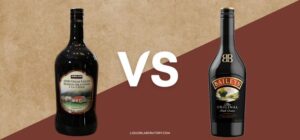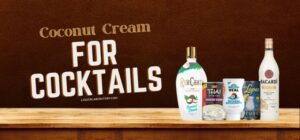Last Updated on February 24, 2024 by Lydia Martin
Some whiskey lovers might have thought about keeping a bottle of whiskey for extra years to age it longer. While this is a viable idea, you have to confirm this first.
Will a ten-year-old whiskey become a 20-year-old bottle if you let it sit in your liquor cabinet for another ten years?
Does whiskey age in the bottle and get a different flavor? Keep reading to find out.
Table of Contents
ToggleDoes Whiskey Age in the Bottle?

Whiskey will not age in its glass bottle like a fine wine.
A whiskey that’s aged for seven years will always carry a 7-year age statement, even if you leave it on the cabinet for 20 years.
Age statements are the amount of time the spirit spent on the wood cask or barrel.
But the flavor of the whiskey may change–not because of how long you store it– but due to oxidation. But does whiskey get better with age?
Why Whiskey Doesn’t Age After Being Bottled
As soon as the whiskey enters the bottle, there’ll be no interactions, ending the whiskey-making process.
Unlike a wine bottle, whiskey has a mix of ethyl alcohol and water. Its character comes from the fermented grain mash and the cask, where the aging process occurs.
The type of grain and the casks used in aging whiskey provide unique spices.
Once it is bottled and distilled, the aging process stops, and the whiskey won’t age anymore.
What Happens To It After It’s Bottled?

After bottling, whiskey stops aging and retains the flavor and character influenced by the cask used.
It is sealed in the bottle to prevent oxidation, which may alter the natural flavors of the spirit.
They are prone to harsh elements, like prolonged exposure to direct sunlight and air, temperature fluctuations, mishandling, and more.
Read: Can Fine Whiskey Age Overnight?
Does Whiskey Improve With Age In A Bottle?
Whiskey will never improve with age in a bottle. The only thing that can improve whiskey’s flavor is the wood cask.
“The thing that has the biggest weight on what your whiskey is going to taste and smell and drink like is the barrel it’s in.”
— Lew Bryson, Author/Journalist
The longer the whiskeys mature in the barrels, the more solid and flavorful they can get. Many distilleries utilize casks used in other alcohol crafting processes to impart additional flavor.
Does It Age When Unopened?

Whiskey, whether bourbon, rye whiskey, or Scotch whisky, wouldn’t age in the bottle, unlike wine, even unopened.
The maturation process occurs while the spirit is still in the charred oak barrels.
The taste profile of a Scotch whisky remains the same even if it’s unopened. And the spirit only gets its flavor from the wood sugars it matures in.
Does It Degrade After Bottling?
Whiskey doesn’t degrade after bottling. However, it will be prone to degradation once it enters the bottle. It’s not the bottling process that degrades whiskey.
Mishandling and harsh conditions from air and temperature (warmer climate) are just a few reasons that make the spirit go bad.
How Long Does Whiskey Stay Good In The Bottle?

The shelf life of the aged whiskey depends on the way you store it.
Be it a single malt Scotch whisky [1], bourbon, or a single barrel expression, as long as the bottles are properly stored, they should be good for several years – 10…15…20 years, and so on.
Remember, whiskey bottles must be stored upright in a dark place to retain their natural spices.
What’s The Longest You Can Age Whiskey?
There’s no definite time for how long you can age a spirit.
Bourbon and rye expressions are usually aged at 10, 12, 15, or 18 years, but there are older whiskeys like the Teeling 30-year-old single malt drink.
As for Scotch whisky, single malts are aged for a minimum of three years, and blended whisky expressions are aged for 5, 8, or 12 years.
But an older whiskey can be aged up to 50 years and over.
Fun Fact: The oldest whisky ever released is the Macallan 81-Year-Old, which comes at a higher price point. Then, it was followed by the Glenlivet 80-Year-Old and Macallan 78-Year-Old.
Frequently Asked Questions (FAQs)
What does whiskey’s age statement mean?
The age statement on a bottle of whiskey provides consumers with valuable information about the aging process of the spirit. Specifically, it indicates the duration for which the whiskey has been maturing in wooden barrels before being bottled.
This aging period is crucial as it allows the whiskey to interact with the wood, extracting various compounds that contribute to its flavor, aroma, and overall character. For instance, if a bottle of whiskey boasts an age statement of “10 years,” it signifies that the youngest whiskey in the blend has undergone a maturation period of at least a decade.
This age statement serves as a testament to the craftsmanship and dedication of the distiller, offering insight into the quality and complexity of the whiskey within.
Does age matter in whiskey?
Indeed, age holds considerable significance in the world of whiskey. The aging process plays a pivotal role in shaping the flavor profile and overall quality of the spirit.
As whiskey rests in wooden barrels over time, it undergoes a series of chemical reactions that impart depth, richness, and complexity to its character. Essential compounds from the wood, such as vanillin, tannins, and lignin, infuse into the whiskey, lending it distinct flavors and aromas.
Consequently, older whiskeys often exhibit greater smoothness, balance, and sophistication compared to their younger counterparts. However, it’s essential to note that age alone does not guarantee excellence, as other factors like the type of barrel, climate conditions, and distillation techniques also influence the final product’s flavor profile.
Does whiskey age in the barrel?
Absolutely, whiskey undergoes a transformative aging process while it resides in wooden barrels. This period of maturation is crucial for developing the spirit’s character and imparting desirable flavors and aromas. As whiskey interacts with the wood, it absorbs compounds that contribute to its unique profile, such as oak-derived vanillin, tannins, and lignin.
Furthermore, the porous nature of the barrel allows the whiskey to breathe, facilitating the exchange of oxygen and encouraging the development of complex flavors over time. Consequently, the duration and conditions of barrel aging significantly influence the quality and character of the final product, making it a vital aspect of whiskey production.
What happens to whiskey in the bottle over time?
Once whiskey is bottled, it undergoes a state of dormancy in terms of aging, as it is no longer in direct contact with the wood of the barrel. However, subtle changes can occur within the bottle over extended periods. While the aging process slows significantly, factors such as oxidation and minor evaporation may still influence the whiskey’s flavor, aroma, and overall character.
Oxidation, in particular, can gradually alter the composition of the whiskey, leading to nuanced changes in taste and aroma. Despite these transformations occurring at a slower pace compared to barrel aging, the whiskey’s profile may evolve subtly over time, albeit to a lesser degree.
Does the age statement on the bottle indicate how long the whiskey has been aging in the bottle?
No, the age statement on a bottle of whiskey specifically refers to the length of time the whiskey has been aged in wooden barrels before bottling. It does not reflect any additional aging that may occur in the bottle after it has been packaged.
Can whiskey spoil or go bad in the bottle?
Whiskey does not spoil or go bad in the same way that perishable food items do. Properly stored whiskey can remain drinkable for many years, even decades, without significant degradation in quality. However, over an extended period, whiskey may experience changes in flavor and aroma due to factors such as oxidation and evaporation.
Does shaking or moving the bottle affect the aging process of whiskey?
Shaking or moving the bottle does not affect the aging process of whiskey since aging occurs primarily while the whiskey is stored in wooden barrels. However, excessive agitation of the bottle may cause the whiskey to become cloudy temporarily due to the disturbance of sediment or particles in the liquid. It’s generally best to handle whiskey bottles gently to avoid disrupting the contents unnecessarily.
Can I improve the taste of whiskey by letting it age in the bottle?
While whiskey does not continue to age in the bottle, some people believe that allowing whiskey to “breathe” or rest in the bottle for a period after opening can help to mellow its flavors and integrate its components. This is often referred to as “bottle aging” or “bottle maturation.” However, the extent to which this process improves the taste of whiskey is subjective and may vary depending on individual preferences and the specific characteristics of the whiskey.
Key Takeaways
Whiskey, once it leaves the casks, the final product will never age more, even if you store it for 10 or 20 more years, unlike wine.
The bottle only retains the liquor’s flavor from the cask or wood, keeping it from too much exposure to air and temperature.
But remember, how you store whiskey can affect its taste profile and how long it can stay good– whether opened or unopened.
Reference:
















